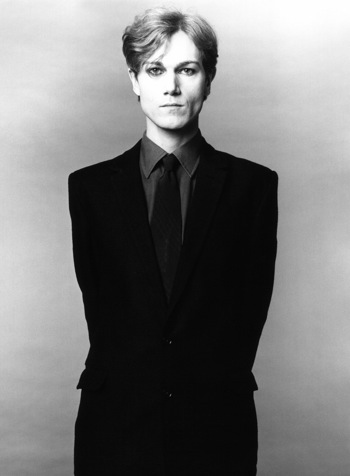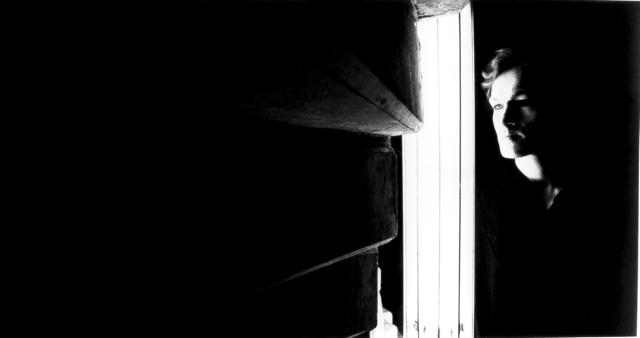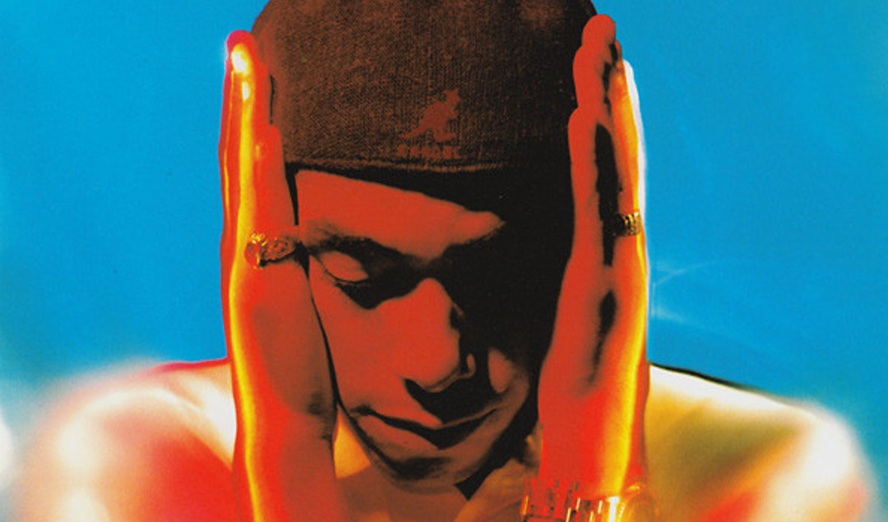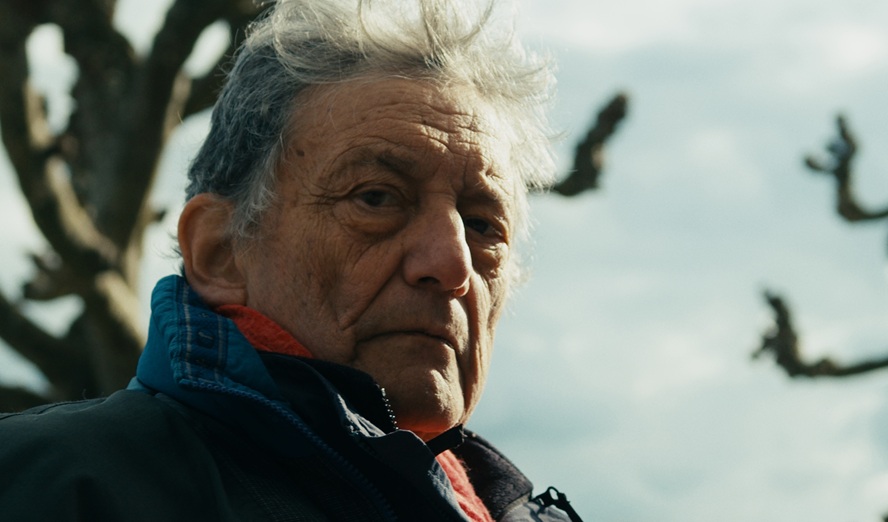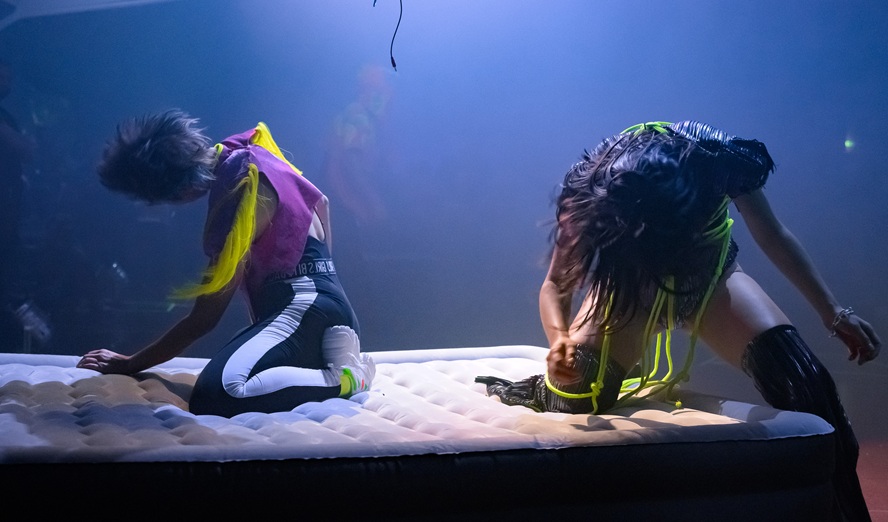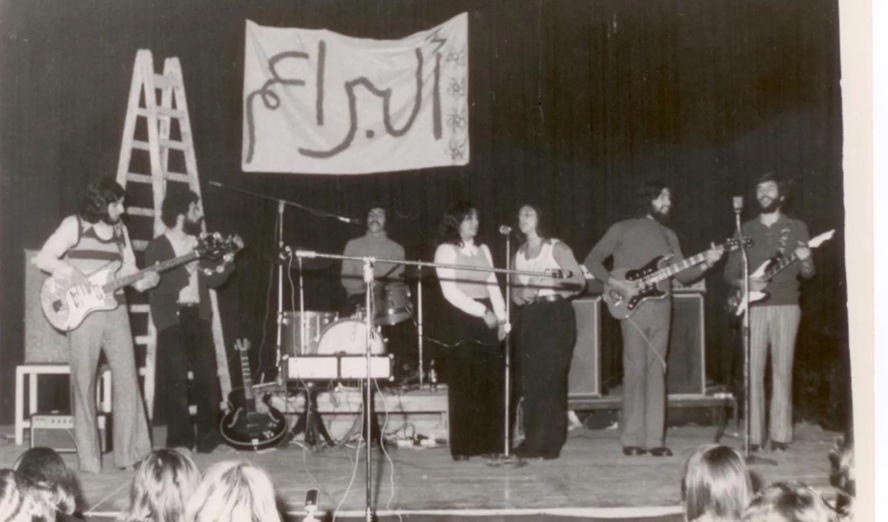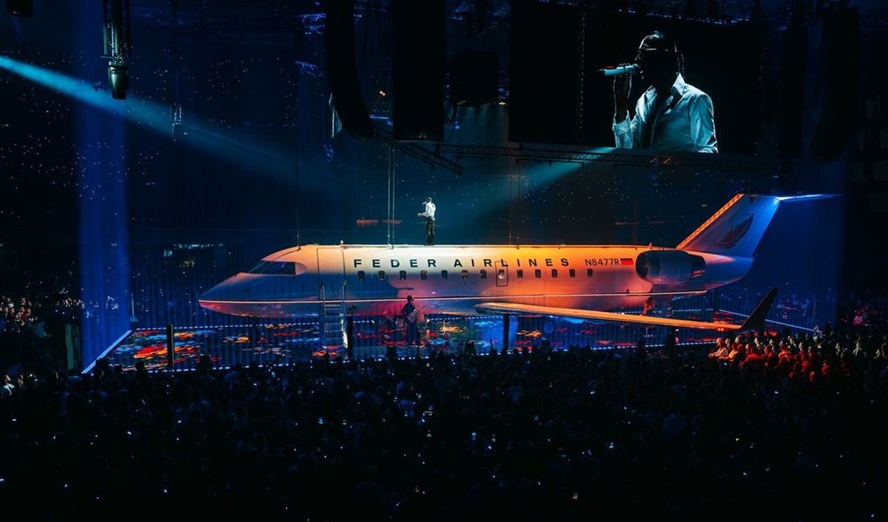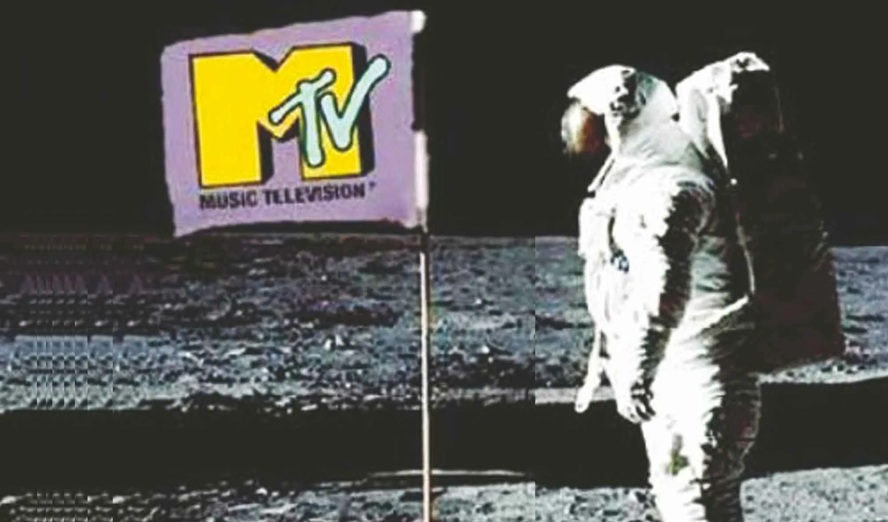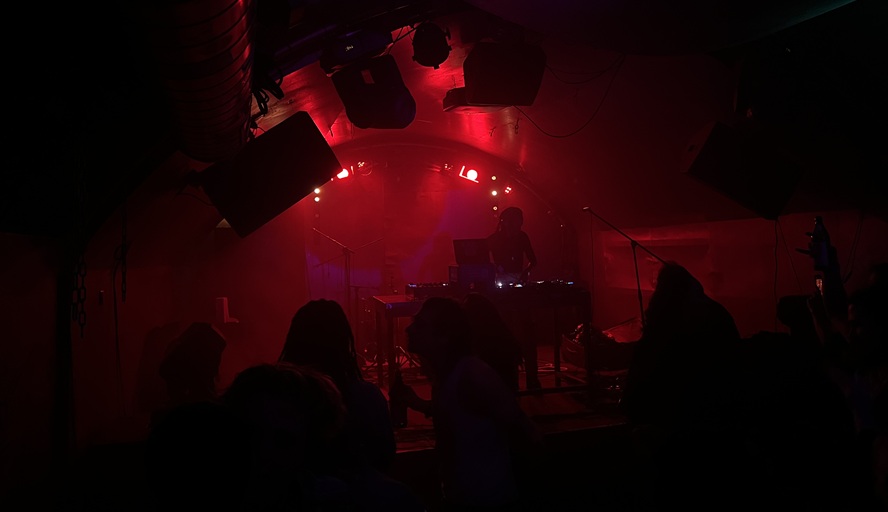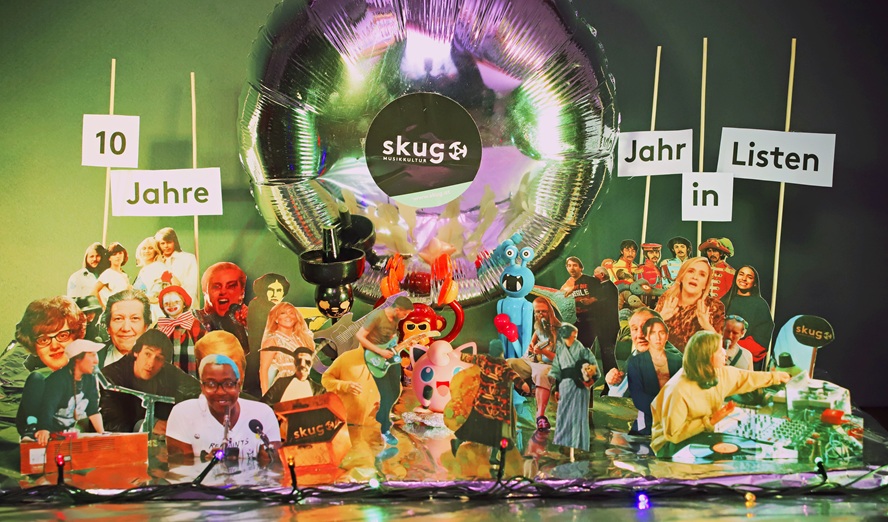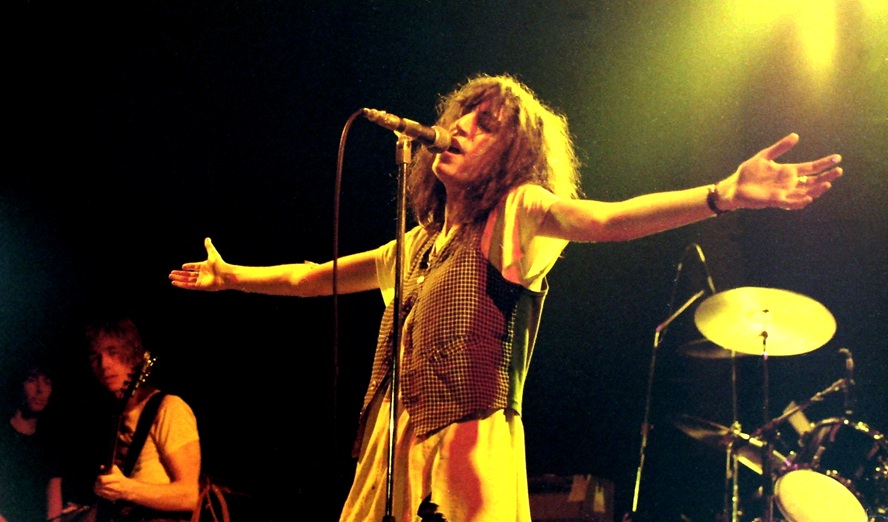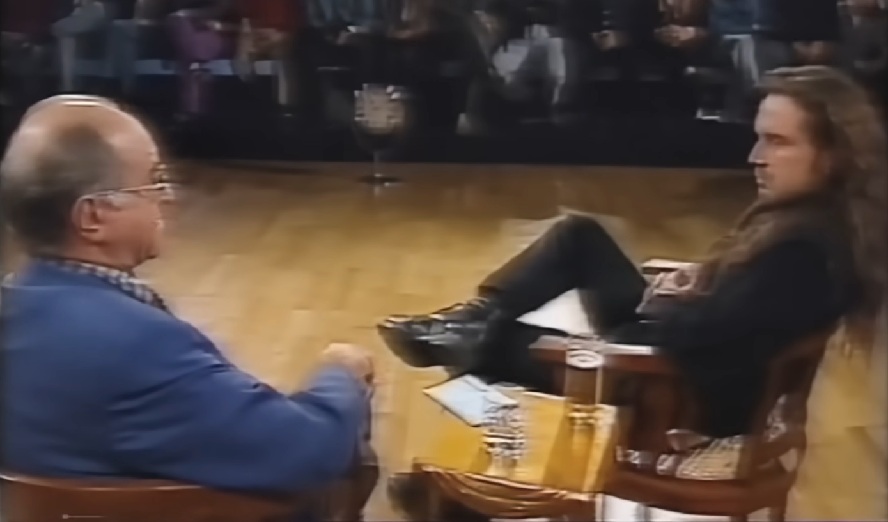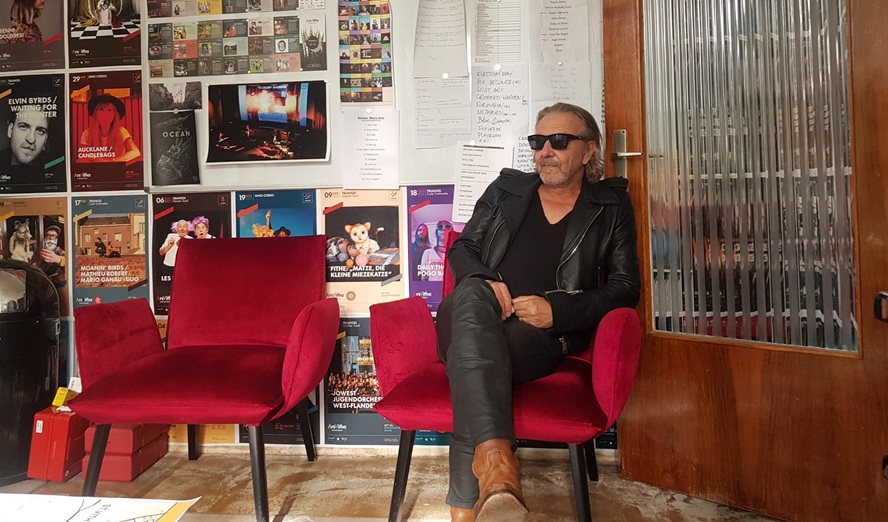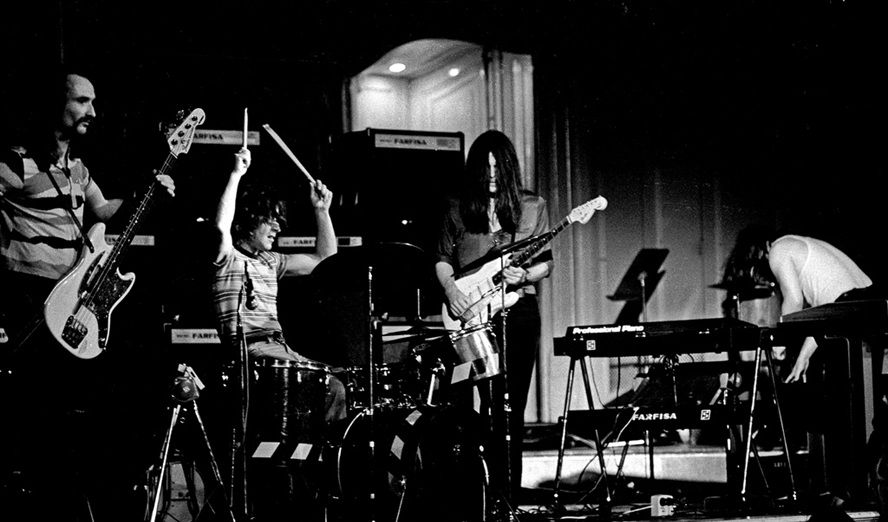skug: I understand that some of the songs on Interplay were basically »predetermined« by the analogue synthesizers that were used. Ben Edwards aka Benge (The Maths) and you worked with a rhythm given by a Moog system and built the songs around it. Did the machines rule the composer?
John Foxx: In a way, they did – since many of the songs arrived because of the arpeggios and other pieces Benge had set up using his huge collection of synths. Arpeggios have an inherent rhythmic and harmonic structure, so we simply negotiated this to arrive at the songs.
Interplay seems to homogeneously include every accentuation your musical output has been forming (from House-influenced opening tracks to the »Garden«-reminiscent second half of the album) since you started making music. Has this been a deliberate incorporation of your musical stages?
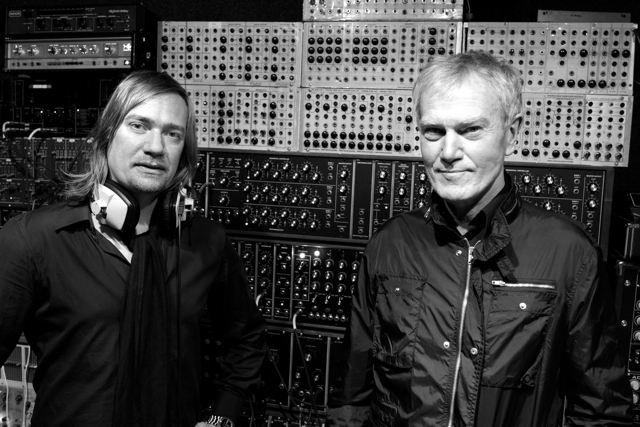 We both imagined we would make a more abstract instrumental recording when we began, but those arpeggios led us right into songs. I’m pleased they seem to refer to various previous songs, because any artist is constantly distilling and refining their grammar. You just hope it becomes more effective and elegant, rather than becoming a hollow caricature.
We both imagined we would make a more abstract instrumental recording when we began, but those arpeggios led us right into songs. I’m pleased they seem to refer to various previous songs, because any artist is constantly distilling and refining their grammar. You just hope it becomes more effective and elegant, rather than becoming a hollow caricature.
Looking back, is there any period of your career that you find hard to embrace?
Most of it. I always want to get on with the next thing.
After your re-emergence to the music scene in 1997 you have been repeatedly collaborating with musicians in the field of contemporary electronic music. Do you also feel »in touch« with today’s re-vitalized analogue and minimal synth scenes, which draw predominantly from the ideas and aesthetics of the time that you and others shaped more than 30 years ago; or do you experience this movement as sheer retrospective nostalgia?
I do feel in touch and in sympathy with it all. I don’t feel any sense of separateness. Whenever I go into a studio with a musician from any other generation, we find have a common language, and it is marvellous to see how all potential barriers can be dissolved by this.
I guess every generation selects what is appropriate to it from the past. This generation has chosen electronic music, and it is fascinating to see where they are taking it. I’m just a component of the new building.
Your songs are classic entries to every DJ’s playlist at New Wave parties. »Underpass« especially seems to be the »Evergreen« (to quote »Interplay«) of your solo career. Is it one of those classical hit songs that’s going to haunt it’s creator forever or can you still identify with it?
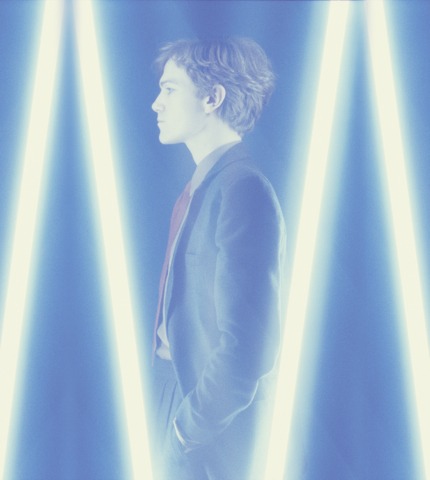 I still feel aligned to that song and others like it. It seems to have taken some time to become so recognized, and it’s naturally very satisfying now this has happened.
I still feel aligned to that song and others like it. It seems to have taken some time to become so recognized, and it’s naturally very satisfying now this has happened.
You will be performing April 2011 in London at »Back To The Phuture« alongside Gary Numan and the techno-duo Motor, »connecting the dots between the synth pioneers and today’s electropop artists«. How will the »Phuture« sound?
I hope it will sound at least as good as the phast.
How do you reflect on the »comeback« of media like cassette tape, vinyl and analogue instruments. Do you share a »post-MP3«-viewpoint? Are we going back to D-I-Y?
There is always a counter movement and this is very healthy – it shows that some people are thinking for themselves. Also – it interests me that every medium has its own unique properties and we often are not aware of them until that medium falls out of use.
You have been expressing yourself artistically through various channels, like music, literature, film and photography. Do you aim for a synthesis of the arts, or do you rather switch your medium depending on your message?
I think certain principles apply to all the arts. I like to move around and experiment with everything I can – all these aspects of work refresh each other. I would hate to be relegated to one method of working.
Pop history spreads the view that artistic movements of the 70’s and 80’s have been fueled mainly by the political alienation of post-’68-generations and the new accessibility of media. Do you agree on this and what motivates artistic expression nowadays? What are the global developments and challenges that you are reflecting on today?
I think that is true. The motivations are always the same – making a model of things so they may be explored – gently to radically, but usually from a safe distance. The themes are pretty universal and have been more or less the same since prehistory. I believe that the arts are often concerned with making models – like an architect’s model of a building. Using this model means you can explore it thoroughly – before it is built and becomes an unmovable reality. 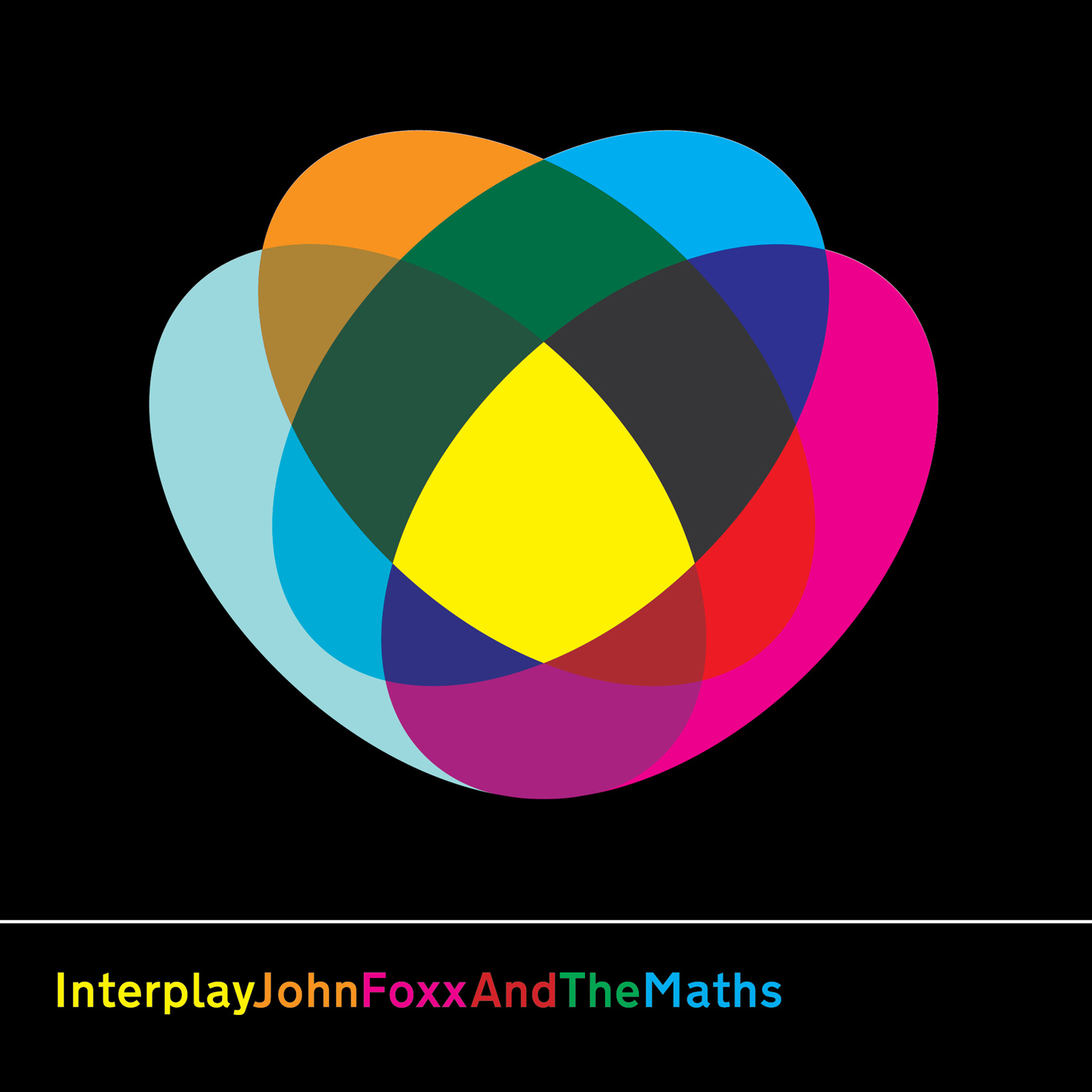
But the other arts are busy doing all this in reverse – they are to do with selecting aspects of what has already happened, then using these to create some sort of unified field – making sense of chaos, in other words. Science is also doing the same thing by other means. (And meanwhile, on the sidelines, a good comedian will illustrate how absurd we can all be in our seriousness as we go about doing all this). A play or a film, for instance, is a model of a situation – through it we can examine several other peoples‘ point of view – their relationships, circumstances, motivations and emotions. Photographs present a chemical or digital model of a single moment. A novel often presents a model of someone’s complete interior world.
Because the world is changing all the time and the themes rarely do, we need to update these models constantly. The frisson we feel in being confronted by a new work of art is often caused by that sudden recognition of an updated theme. A new version of something deeply embedded and permanent.
Are there any upcoming projects and collaborations you’d like to talk about?
I’m making a set of recordings using piano melodies combined with other recordings, made by leaving recorders on in empty rooms. Its title is »Electricity and Ghosts«.
Can you name a few of your new musical and cinematographic encounters in recent years?
There seems to be so much. At present, I’m just finishing albums with Harold Budd and Rubin Garcia, Theo Travis, Paul Daly of Leftfield, some tracks with Ghostbox, and an album involving The Smoke Fairies, Hannah Peel and Serafina Steer with Steve D’Agostino.
On the film side – Karborn and I have begun a film about Iain Sinclair, an author I particularly admire, using over forty years home movies of life in London from his archive. Also a second album of Tiny Colour Movies, having found over twenty fascinating pieces of Super8 and old video footage. Alex Proyas, director of »I Robot« has been in touch and we are discussing a project. And I’ve begun a film project with Macoto Tezka, a Japanese filmmaker whose work I greatly admire.
Have you witnessed any groundbreaking developments recently that were pushing forward the boundaries of music and film?
At this point, I’m still thinking very closely about the past – and how strange and interesting it is that most of the discoveries that made modern media possible, were made by people who were actually trying to contact the spirit world, by listening to voices in the air. From these experiments we arrived at television, radio, telephone etc. (for more on the topic see BBC’s »Science and the seance«). Ironically, this has led us to this point, where we have more ghosts than ever before – Marilyn Munro, Chaplin, Kennedy, Kurt Cobain, etc., these are all modern technological ghosts. All dead, but still present. It is a fascinating situation.
Also – since then, we seem to have lost the will to make investigations at home, as those media pioneers did. Instead we imagine that Science carried out in distant, expensive laboratories, away from everyday life, has the monopoly of discovery. I think we need to recover some of that previous century’s pioneering confidence. Even working in a home recording studio is a kind of laboratory – an endless voyage of discovery both of music and technology – and of your own and other peoples psyche and psychology. There is still so much to be discovered through any such practice, and through close observation of everyday events.
You have taken a senior lecturer position at the The London College of Music and Media London. What is the most important thing your students at the TVU should learn from you?
When to leave. You only really begin to learn when you leave.
